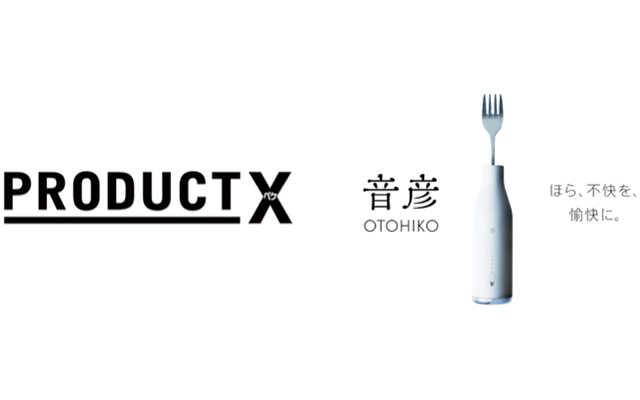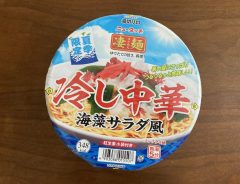
Source: (C) Nissin Food Products Co., Ltd.
Nissin Hopes to Fight “Noodle Harassment” With Slurping Noise-Neutralizing Noodle Fork
- Source:
- (C) Nissin Food Products Co., Ltd. / (C) Nissin Food Products Co., Ltd. / (C) Japan Times Ltd. / (C) Pakutaso
- Tags:
- camouflage / harassment / Instant noodles / Nissin Cup Noodles / Nissin Food Products / Noise / noodle harassment / noodle slurping / Noodles / Otohiko / Otohime / Project X / Purojekuto Peke / Shinya Kiyokawa / slurping
Related Article
-

SOUP ONLY – serving up noodle-less Tantanmen in the battle against food wastage
-

Japan’s instant chilled ramen makes noodles a quick and refreshing summer treat
-

Cup Noodle’s new flavor pairs ramen with its ultimate partner and is made to eat with rice
-

Samurai Schoolgirl Fights With Japanese Sumo To Get Back Her Chicken Ramen
-

Clever Cup Noodle humidifiers are the best way for ramen lover’s to take care of their room
-

#RegisterHarassment video, manga trend on Japanese Twitter as COVID-19 stresses shoppers


With an increase in awareness and more open discussion of the various kinds of harassment occurring in Japan at school, university, work and in society at large, the glossary of harassment terms seems to get longer every day. In the two decades since the enforcement of the Equal Employment Opportunities Act, which did much to combat sexual harassment, we have seen other terms like maternity harassment, power harassment and moral harassment. However, there are also "so-hara" (social media harrassment), "rabu-hara" (love harassment, where displaying or talking about love in front of others can make them upset) -- not to be confused with "bura-hara" (blood harassment, or discrimination based on blood type) -- and sume-hara (smell harassment, where perfume or body odor upsets others), just to name a few.
"Noodle harassment," (abbreviated as "noo-hara" in Japanese), which is harassing others with the sound of slurping noodles, is a recent addition to the list.
We have Nissin to thank for heightening our awareness of this vexing problem through their announcement today of a revolutionary new utensil called Otohiko, an intelligent fork which recognizes the distinct audio signature of slurping noodles and produces a specially-designed sound to neutralize the noise before it becomes a nuisance.
source: (C) Nissin Food Products Co., Ltd.
Otohiko is the first product in a completely new initiative from the instant noodle pioneer called Project X (but read in Japanese as "Purojekuto Peke", "peke" being a more infantile term for the X mark -- a detail which may give us cause to believe that Nissin's attitude towards product development within the scope of this project is somewhat tongue-in-cheek).
source: (C) Nissin Food Products Co., Ltd.
If the name "Otohiko" (meaning "Sound Prince") sounds familiar, that is because Nissin was inspired by "Otohime" (meaning "Sound Princess"), Toto's popular toilet manner device installed throughout Japan in many public toilets (especially inside department stores and restaurants) and designed to help camouflage the offensive sounds emanating from your orifice.
But who is offended by the sound of slurping noodles?
After all, slurping is considered in Japan to be the "right" way to eat ramen, soba, udon and instant noodles.
source: (C) Pakutaso
Nissin explains in their press release: "As we approach 2020, the number of visitors to Japan is rapidly growing as we draw even more global attention than before. At the same time, friction is caused by differences in culture and values with regards to slurping one's noodles in order to enjoy them. We developed Otohiko to reduce this friction."
Their promotional video, posted below, shows Otohiko bridging this cultural gap and allowing both Japanese people to slurp their noodles without fear of harassing their foreign friends and foreigners to slurp without worrying about the offensive noise it produces:
Let's take a closer look at Otohiko to understand how it works:
source: (C) Nissin Food Products Co., Ltd.
To begin with, the shape of the handle is ergonomically designed to be easy to hold, with a tapered neck that is easy to grasp with your fingers. Through extensive sampling and analysis, Nissin developed a highly directional microphone capable of detecting the slightest slurping noise. As soon as a slurp is detected, a connection is established with your smartphone through short-range wireless communications. Finally, an easy-to-use application triggers a specially-designed camouflage sound, and the noise is safely neutralized so you can enjoy your noodles, slurps and all. Another useful feature is an LED indicator in the handle which lets you know when Otohiko is fully charged.
To design the camouflage sound, Nissin turned to famous sound artist Shinya Kiyokawa, known for his contributions to the advertisement world through his expertise in environmental sound sampling and engineering.
source: (C) Nissin Food Products Co., Ltd.
If you are interested in getting your own Otohiko, Nissin will sell them for JPY 14,800 per unit. They are taking orders on their online shop between October 23 and December 15 and will proceed with the sale once 5,000 orders are received.
While Otohiko is a witty application of technology, perhaps we should use our proverbial noodle a bit before slurping up this concept wholesale. How representative are the foreigners depicted in their video? It's one thing to argue that customers at a ramen shop in New York City may not appreciate a Japanese person slurping loudly because it runs counter to accepted manners in the US, but to argue that foreigners who have studied Japanese long enough to speak it that well would be offended -- in Japan, no less -- by Japanese people slurping their ramen? The idea is difficult to accept.
When it comes down to it, the premise behind Otohiko's creation -- "noodle harassment" -- may be like a bowl full of toppings with no noodles underneath, the putative foreign victims of harassment hardly more than concepts on a marketing team drawing board.